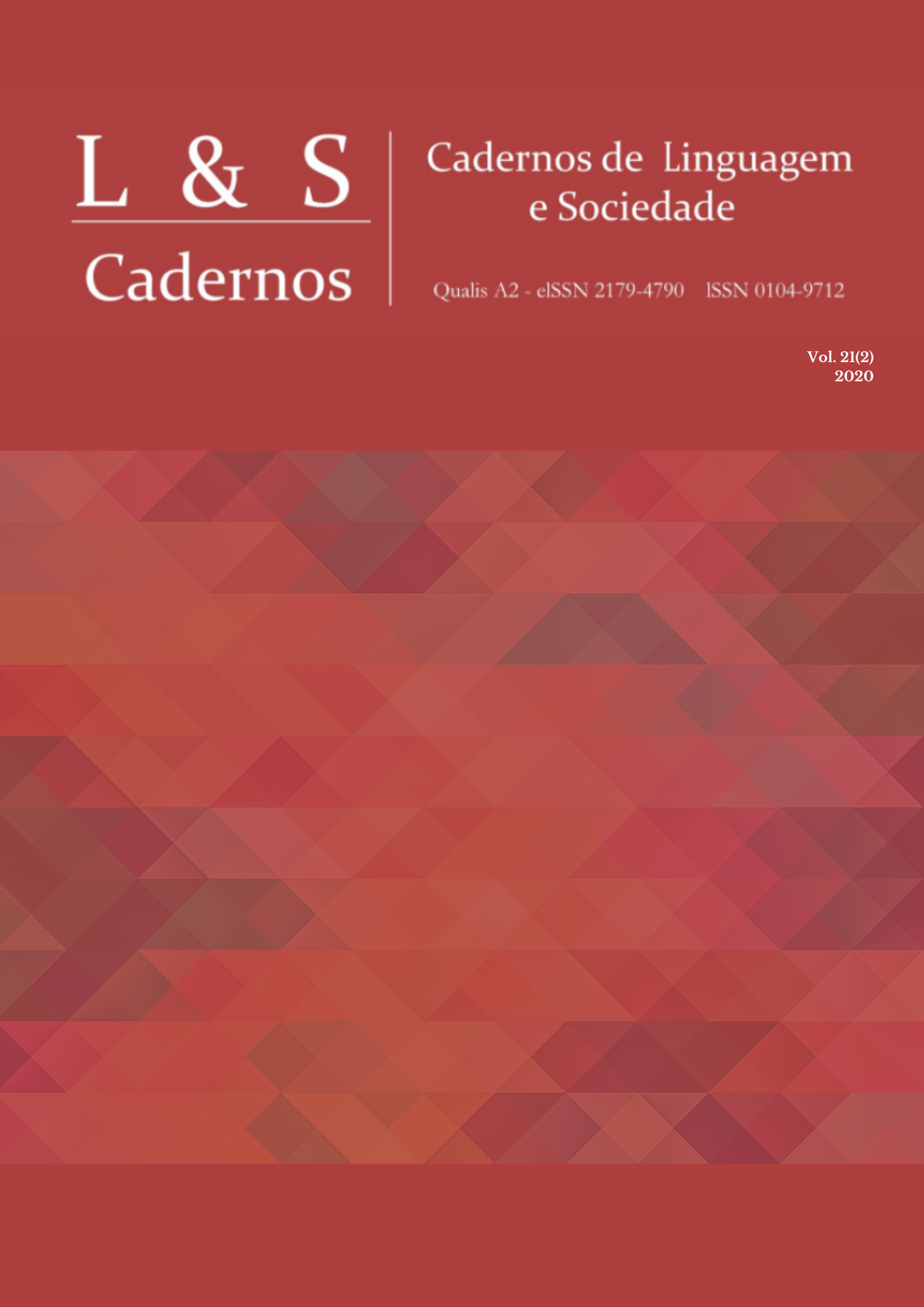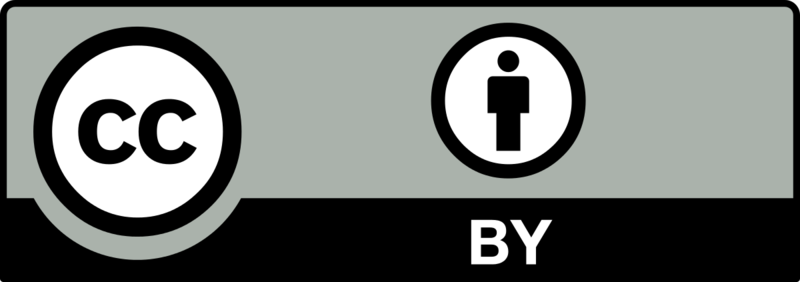Social Functions of humor in telecollaboration
DOI:
https://doi.org/10.26512/les.v21i2.31739Palavras-chave:
Humor. Telecolaboração. Intercâmbios telecolaborativos. Ensino e aprendizagem online de línguas estrangeiras.Resumo
Considerando que momentos de humor (BELL; ATTARDO, 2010; KIM; PARK, 2017; REDDINGTON, 2015) podem surgir quando aprendizes de línguas interagem, este estudo teve como objetivo compreender as funções sociais do humor em atividades telecolaborativas. Para as análises, foram incluídos dados de sessões de telecolaboração e de uma sessão de mediação. Entre outras funções sociais do humor, a análise dos dados revelou “reforço de descontentamento”, “diminuição do filtro afetivo dos participantes” e “manutenção da harmonia entre os participantes”. Os resultados indicaram que os participantes puderam se envolver na negociação de significados com aprendizes de línguas de outros horizontes culturais enquanto construíam humor.
Downloads
Referências
BAKHTIN, M. M. The Dialogic Imagination: Four Essays. Austin: University of Texas Press, 1981.
BELL, N. D. Learning about and through humor in the second language classroom. Language Teaching Research, v. 13, n. 3, p. 241-258, 2009.
BELL, N. D.; ATTARDO, S. Failed humor: Issues in non-native speakers’ appreciation and understanding of humor. Intercultural Pragmatics, v. 7, n. 3, p. 423-447, 2010.
BLOMMAERT, J. Discourse: Key topics in sociolinguistics. Cambridge: Cambridge University Press, 2005.
BROWN, P; LEVINSON, S. C. Politeness: Some universals in language usage. Cambridge: Cambridge University Press, 1987.
BURBULES, N. C. Rethinking dialogue in networked spaces. Cultural Studies””Critical Methodologies, n. 6, p. 107-122, 2006.
BYRAM, M.; GRIBKOVA, B.; STARKEY, H. Developing the intercultural dimension in language teaching: a practical introduction for teachers. Strasbourg: Council of Europe, 2002.
CANAGARAJAH, A. S. Subversive identities, pedagogical safe houses, and critical learning. In: NORTON, B; TOOHEY, K. (ed.). Critical pedagogies and language learning. New York: Cambridge University Press, 2004. p. 116-137.
CARTER, R. Language and creativity: The art of common talk. London: Routledge, 2004.
CRYSTAL, D. Language play and linguistic intervention. Child Language Teaching And Therapy, v. 12, n. 3, p. 328-344, 1996.
DERVIN, F. Exploring ‘new’ interculturality online. Language and Intercultural Communication, v. 14, n. 2, p. 191-206, 2014.
DUNN, J. Young children’s close relationships: beyond attachments. London: Sage, 1993.
FAIRCLOUGH, N. Critical discourse analysis and the marketization of public discourse: The universities. Discourse and Society, v. 4, n. 2, p. 133-168, 1993.
FAIRCLOUGH, N. Analysing discourse: Textual analysis for social research. London: Routledge, 2003.
FORMAN, R. Humorous language play in a Thai EFL classroom. Applied Linguistics, v. 32, n. 5, p. 541-565, 2011.
GEE, J. Literacy, discourse, and linguistics: Introduction. Journal of Education, n. 171, v. 1, p. 5-17, 1989.
HOLMES, J.; MARRA, M. Over the edge? Subversive humor between colleagues and friends. Humor, v. 15, n. 1, p. 65-88, 2002.
KIM, S; PARK, S. Humor in the language classroom: A review of the literature. Primary English Education, v. 23, n. 4, p. 241-262, 2017.
KRAMSCH, C. Context and culture in language teaching. Oxford: Oxford University Press, 1993.
KRASHEN, S. D. Principles and practice in second language acquisition. New York: Pergamon Press, 1987.
LEONE, P.; TELLES, J. A. The teletandem network. In: O’DOWD, R.; LEWIS, T. (ed.). Online intercultural exchange: Policy, pedagogy, practice. New York: Routledge, 2016. p. 241-247.
LOPES, Q. B.; FRESCHI, A. C. Potenciais sequências de aprendizagem intercultural no teletandem: a importância da mediação. Revista do Gel, v. 13, n. 3, p. 49-74, 2016.
MARTIN, R. The psychology of humor: An integrative approach. Boston, MA: Elsevier Academic Press, 2007.
MARTINEAU, W. A Model of the Social Functions of Humor. In: GOLDSTEIN, J; MCGHEE, P. E. (ed.). The Psychology of Humor. Academic Press, New York and London, 1972. p. 101-125.
NEULIEP, J. W. An examination of the content of high school teachers' humor in the classroom and the development of an inductively derived taxonomy of classroom humor. Communication Education, v. 40, n. 4, p. 343-355, 1991.
O’DOWD, R. The use of videoconferencing and e-mail as mediators of intercultural student ethnography. In: BELZ, J; THORNE, S. (ed.). Internet-mediated intercultural foreign language education. Boston, MA: Heinle & Heinle, 2006. p. 86-120.
O’DOWD, R. Online intercultural exchange: An introduction for foreign language teachers. Clevedon: Multilingual Matters, 2007.
O’DOWD, R. Telecollaboration and CALL. In: THOMAS, M.; REINDERS, H; WARSCHAUER, M. (ed.). Contemporary Computer-assisted Language Learning. London: Bloomsbury Academic, 2013. p. 123-141.
O’DOWD, R. Revised version of a plenary address given at the Sixth International Conference on the Development and Assessment of Intercultural Competence: Intercultural Competence and Mobility: Virtual and Physical. University of Arizona: USA, 2018.
PALMER, J. Taking humor seriously. London: Routledge, 1994.
PATTON, M. Q. Quality in qualitative research: Methodological principles and recent developments. Chicago: Invited address to Division Journal of the American Educational Research Association, 1985.
PHIPPS, A.; GONZALES, M. Modern Languages: Learning and Teaching in an Intercultural Field. London: Sage Publications, 2004.
REDDINGTON, E. Humor and Play in Language Classroom Interaction: A Review of the Literature. Working Papers in TESOL & Applied Linguistics, v. 15, n. 2, p. 22-38, 2015.
ROULET, E. Polyphony. In: ZIENKOWSKI, J.; ÖSTMAN, J.-O.; VERSCHUEREN, J. (ed.). Discursive pragmatics. Amsterdam: Benjamins, 2011. p. 208-222.
SALOMÃO, A .C. B. A cultura e o ensino de língua estrangeira: perspectivas para a formação continuada no projeto Teletandem Brasil. 2012. 268 f. Tese (Doutorado em Estudos Linguísticos) - Universidade Estadual Paulista, São José do Rio Preto.
SCHAEFER, R. The co-construction of interculturality in the project Teletandem Brasil: foreign languages for all. 2019. 597 f. Tese (Doutorado em Inglês: Estudos Linguísticos e Literários) - Universidade Federal de Santa Catarina, Florianópolis.
SOUZA, M. G. Teletandem e mal-entendidos na comunicação intercultural online em língua estrangeira. 2016. 172 f. Tese (Doutorado em Estudos Linguísticos) - Universidade Estadual Paulista, São José do Rio Preto.
TARONE, E. Getting serious about language play: Language play, interlanguage variation and second language acquisition. In: SWIERZBIN, B.; MORRIS, F.; ANDERSON, M.; KLEE, C.; TARONE, E. (ed.). Social and cognitive factors in second language acquisition: Selected proceedings of the 1999 Second Language Research Forum. MA: Cascadilla Press Somerville, 2000. p. 31-54.
TELLES, J. A. Learning foreign languages in teletandem: Resources and strategies. DELTA, v. 31, n. 3, p. 603-632, 2015a.
TELLES, J. A. Teletandem and performativity. Revista Brasileira de Linguística Aplicada, v. 15, n. 1, p. 1-30, 2015b.
TELLES, J. A.; VASSALLO, M. L. Foreign language learning in-tandem: Teletandem as an alternative proposal in CALLT. The ESPecialist, v. 27, n. 2, p. 189-212, 2006.
TELLES, J. A.; ZAKIR, M. A.; ANDREU-FUNO, L. B. A. Teletandem e episódios relacionados a cultura. DELTA, v. 31, n. 2, p. 359-389, 2015.
VAN LIER, L. The Ecology and Semiotics of Language Learning: a Sociocultural Perspective. Dordrecht: Kluwer Academic Publishers, 2004.
VASSALLO, M. L.; TELLES, J. A. Foreign language learning in-tandem: Theoretical principles and research perspectives. The ESPecialist, v. 27, n. 1, pp. 83-118, 2006.
VYGOTSKY, L. S. Mind in society: The development of higher psychological processes. Cambridge: Harvard University Press, 1978.
VYGOTSKY, L. S. Thought and language. Cambridge: MIT Press, 1986.
WOOD, D.; BRUNER, J.; ROSS, G. The role of tutoring in problem solving. Journal of Child Psychology and Child Psychiatry, v. 17, p. 89-100, 1976.
Downloads
Publicado
Como Citar
Edição
Seção
Licença
Copyright (c) 2020 Cadernos de Linguagem e Sociedade do Programa de Pós-Graduação em Linguística da UnB é licenciado sob uma Licença Creative Commons Atribuição-Uso não-comercial-Vedada a criação de obras derivadas 3.0 Unported.

Este trabalho está licenciado sob uma licença Creative Commons Attribution 4.0 International License.
Autores/as que publicam nesta revista concordam com os seguintes termos:
Autores/as mantêm os direitos autorais e concedem à revista o direito de primeira publicação, sendo o trabalho simultaneamente licenciado sob a Creative Commons Attribution 4.0 International license que permite o compartilhamento do trabalho com reconhecimento da autoria do trabalho e publicação inicial nesta revista.



